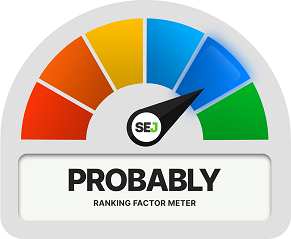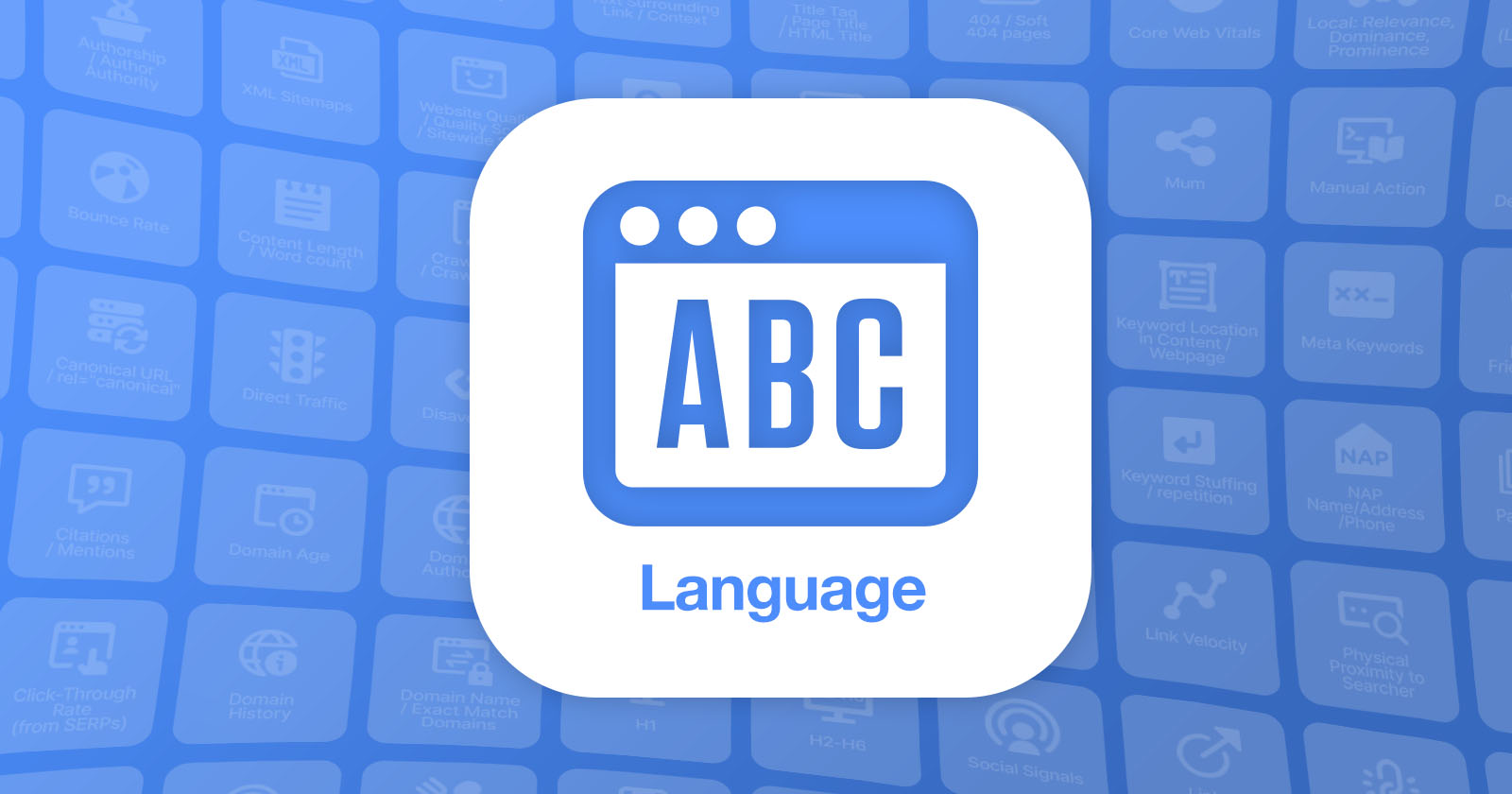If your target audience speaks different languages, offering your website content in multiple languages would make sense to provide a better user experience.
But does offering different languages on your website affect organic search rankings?
Can the way you organize your localized pages affect organic search rankings?
The Claim: Language As A Ranking Factor
Your content should be in English if you want to reach English-speaking people.
However, that same English content probably won’t rank well in markets where other languages – including Chinese, Arabic, or Spanish, for instance – dominate.
Businesses that want to reach customers who speak different languages in specific countries can do so by creating content in multiple languages.
So, it seems logical that language plays some role in how Google ranks webpages, right?
Search engines will always do their best to present users with the most relevant results, and they can detect the language in the content. But they also seem to want us to help by organizing localized versions of pages.
Google mentions language in its explanation of how search algorithms work. It states:
“Search settings are also an important indicator of which results you’re likely to find useful, such as if you set a preferred language or opted in to SafeSearch (a tool that helps filter out explicit results).”
If a searcher sets English as their preferred language and Canada as their location, Google will consider those preferences when delivering results. It makes sense that websites targeting English-speaking people in Canada could be more likely to appear in that search.
[Recommended Read:] Google Ranking Factors: Fact or Fiction
The Evidence For Language As A Ranking Factor
Google’s Advanced SEO documentation shares how you can tell Google about localized versions of your page. The reason this is important?
“If you have multiple versions of a page for different languages or regions, tell Google about these different variations. Doing so will help Google Search point users to the most appropriate version of your page by language or region.
Note that even without taking action, Google might still find alternate language versions of your page, but it is usually best for you to explicitly indicate your language- or region-specific pages.”
Google recommends using different URLs for different language versions of a page. Then, mark each URL with the language you’re using to help search engines understand what’s going on. You can organize language-specific pages in a few different ways:
HTML Tags
The first option is to use the hreflang attribute in the HTML tags of a page, which tells search engines the target language and country for the page.
<link rel="alternate" href="https://www.site.com" hreflang="en-uk">
This code indicates that the page is intended for English speakers in the U.K.
HTTP Headers
You can also place hreflang tags in an HTTP header. This use case helps indicate the language of non-HTML files.
Sitemaps
You can also use your sitemap to specify a page’s language and region variants. This involves listing each language-specific URL under a <loc> tag. Follow the link above to see Google’s guide and code snippet examples.
Different Domains For Different Countries
You can use top-level domain names for specific countries for an Italian website, such as https://domain.it/, which tells search engines the entire website targets people in Italy.
Language-Specific Subdirectories
In addition, you can use subdirectories to separate content by language and country. An example would be content found under https://domain.com/en-us/, targeting English-speaking people in the United States.
It’s important to note that Google claims it doesn’t use any of these methods to determine the language or target audience:
“Use hreflang to tell Google about the variations of your content so that we can understand that these pages are localized variations of the same content. Google doesn’t use hreflang or the HTML lang attribute to detect the language of a page; instead, we use algorithms to determine the language.”
Canonical Tags
Google also recommends using canonical tags in certain situations.
“If you provide similar or duplicate content on different URLs in the same language as part of a multi-regional site (for instance, if both example.de/ and example.com/de/ show similar German language content), you should pick a preferred version and use the rel=”canonical” element and hreflang tags to make sure that the correct language or regional URL is served to searchers.”
Google’s documentation on consolidating duplicate URLs discusses how canonical tags and language work together.
“Different language versions of a single page are considered duplicates only if the main content is in the same language (that is, if only the header, footer, and other non-critical text is translated, but the body remains the same, then the pages are considered to be duplicates).”
Under its do’s and don’ts for canonicalization, Google suggests that you:
“Specify a canonical page when using hreflang tags. Specify a canonical page in same language, or the best possible substitute language if a canonical doesn’t exist for the same language.”
In 2018, Gary Illyes, Chief of Sunshine and Happiness at Google, discussed a sampling of hreflang examples analyzed.
“We spent over half an hour with @suzukik looking at hreflang examples with MENA, EU, ASIA, etc. region codes in hreflang, and I’m happy to report they are not working. We don’t extract a language even from something like fr-eu, let alone use it in ranking.”
In 2021, John Mueller suggested having multiple language content on a page.
“I’d just avoid the situation where you have multiple language versions of the same text on a page (e.g., translation next to the original). Make it easy to recognize the primary language.”
[Discover:] More Google Ranking Factor Insights
Our Verdict: Language Is Probably A Ranking Factor

In explaining how its search engine works, Google discusses how language can affect search results. Multiple pages in Google’s Advanced SEO documentation cover how to handle languages.
You need to have a common language with the user to answer their query successfully, and Google takes language preferences into account when serving search results.
On the other hand, Google states that they don’t use tags, domains, or subdirectories to determine the language or audience. In one case, Gary Illyes said that hreflang code is not a ranking factor.
So, although Google doesn’t officially confirm it to be a ranking factor, language settings affect visibility in search for users who specify a particular language and location.
Therefore:
- Your method of organizing different language versions of your site probably doesn’t affect organic ranking.
- Using people’s preferred language probably does affect organic ranking.
Overall, we’re confident that language is an all-but-confirmed Google ranking factor.
Featured Image: Paulo Bobita/Search Engine Journal
![Ranking Factors: Fact Or Fiction? Let’s Bust Some Myths! [Ebook]](https://cdn.searchenginejournal.com/wp-content/uploads/2022/08/rf-ebook-download-banner-62e8c6126ffe8-sej.jpg)
